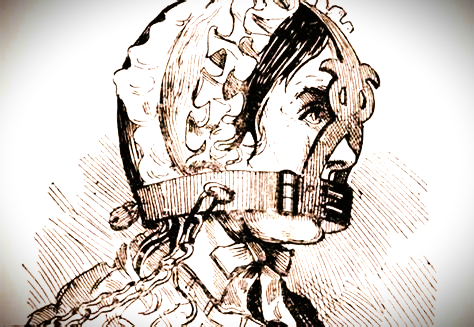Leeds City Museum has recently showcased a chilling piece of England’s past: the scold’s bridle. This brutal device, used from the 16th to the 17th centuries, was designed to silence women accused of speaking out of turn or gossiping. The iron contraption enclosed the wearer’s head, forcing a rough, spiked plate into their mouth to prevent tongue movement, causing both physical pain and public humiliation. Victims were paraded through the streets, often chained, as part of the punishment.
Known also as a brank or witch’s bridle, the device was mainly used to punish women deemed too outspoken or rebellious, reflecting the rigid gender norms and social control of the time. The scold’s bridle was a powerful tool of public shaming, reinforcing societal expectations that women should remain silent and obedient.
The artifact now resides in the Leeds Story gallery at the museum, collected by local historian Norrison Scatcherd. Its display offers a stark reminder of how justice was once served with cruelty, serving as both a historical object and a point of reflection on the evolution of human rights and gender equality.
Kitty Ross, Curator of Social History at Leeds Museums, highlighted the significance of the display, noting that it represents a time when human rights and equality were vastly different. The scold’s bridle is a relic from an era when women’s voices were systematically silenced and punished, symbolizing a society that used public punishment as a tool to control behavior.
The scold’s bridle is just one of many artifacts in the museum’s collection that explore Leeds’ complex history. The Leeds Story gallery traces the city’s transformation from a market town to an industrial powerhouse, offering visitors a deeper understanding of both well-known and hidden aspects of the city’s past. Councillor Salma Arif praised the museum’s ability to bring forth unique chapters of Leeds’ history, helping visitors connect with the past in meaningful ways.
While disturbing, the scold’s bridle serves as a powerful reminder of how far society has come in terms of gender equality and personal freedoms. By reflecting on the harsh punishments of the past, the museum prompts visitors to consider the ongoing importance of protecting free speech, human dignity, and the rights of individuals in today’s world.




